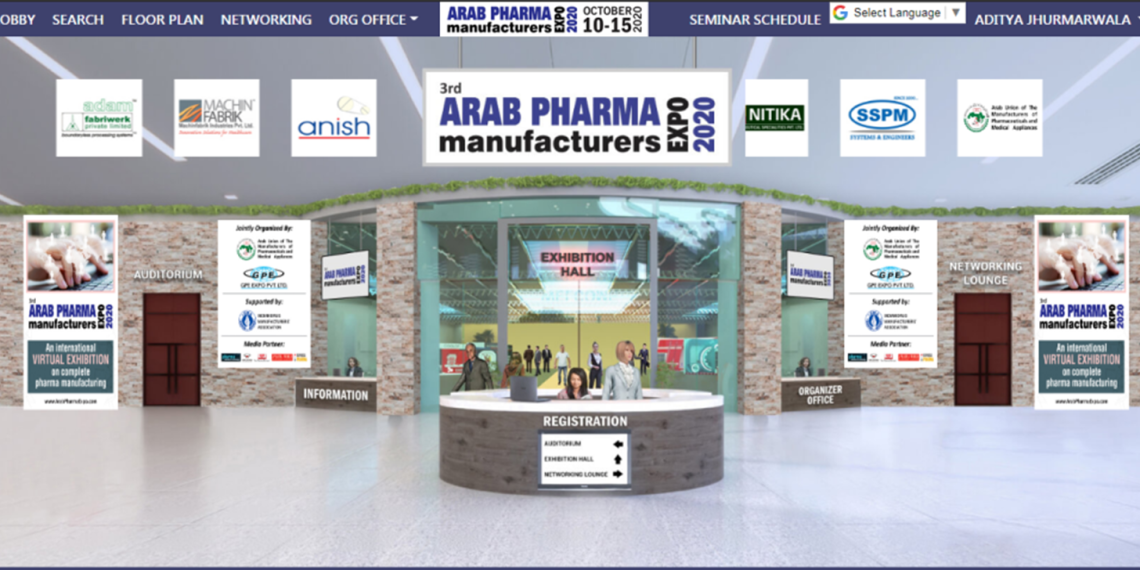During the pandemic situation, healthcare manufacturing has remained a top priority all around the world in terms of continuous investments and expansions at the pharma manufacturing facilities across the world.
The frist online edition of the 3rd ARAB PHARMA MANUFACTURERS’ EXPO 2020 — an international exhibition on complete pharma manufacturing focusing Arabic countries in Middle East & North Africa (MENA) region has drawn attention of buyers and trade professionals attended from more than 20 countries to virtually meet the exhibiting companies for business networking and to attend the Technology Presentations.
 Keeping in mind the health advisories by the Government due to the pandemic, the online Exhibition integrated all the basic essential features to the exhibiting companies to generate optimum output in terms of display and communication while participation in a highly cost effective manner.
Keeping in mind the health advisories by the Government due to the pandemic, the online Exhibition integrated all the basic essential features to the exhibiting companies to generate optimum output in terms of display and communication while participation in a highly cost effective manner.
More than 45 live Technology Presentations addressing the latest trends and current practices of pharma manufacturing technologies by the exhibiting companies spanning over 6 days as concurrent event alongside the online exhibition had remained highly resourceful for pharma manufacturing fraternity to acquire the technology based information.
 Overall, the exhibitors have well appreciated the novel concept of the online exhibition, as it applies all the latest technical aspects to offer the optimum business networking domain bypassing all the limitations.
Overall, the exhibitors have well appreciated the novel concept of the online exhibition, as it applies all the latest technical aspects to offer the optimum business networking domain bypassing all the limitations.
Outstanding benefits of the exhibition are the acceleration of an instant business connectivity, global exposure without any geographical barriers, ease of accessibilities and business networking through mobile, laptop or computer, longer exhibit hours, live chat to engage with prospective suppliers, live technology presentations, real-time experience with negligible investment, options of affordable packages for cost effective participation, and, most importantly, bypass of several other associated costs and time.
Biogas technologies for production of biomethane
The untapped feedstock potential for biomethane production in Spain is very large as the country has a very strong food...
Read more
















